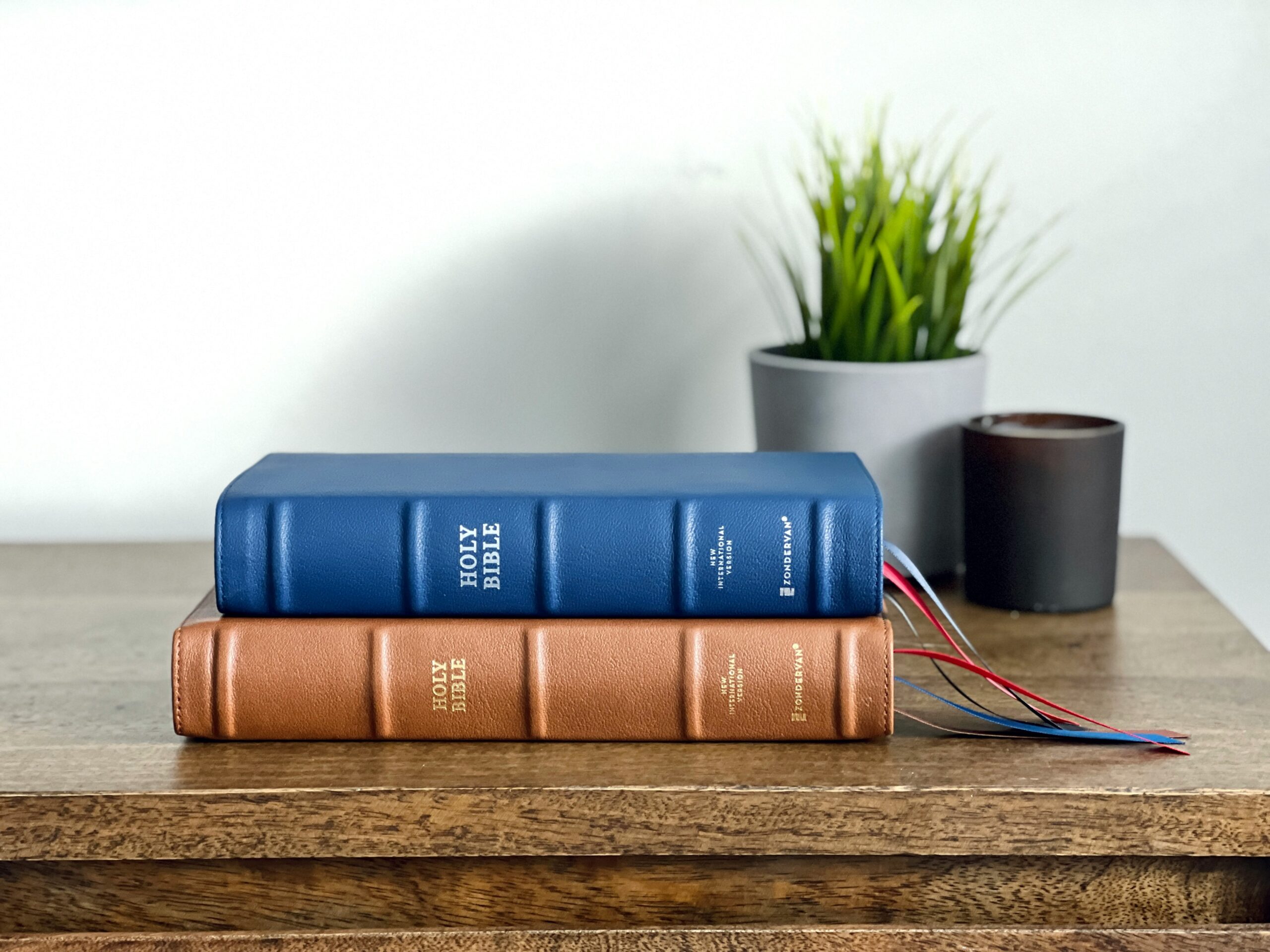| Getting your Trinity Audio player ready... |
Related Study:
Please note that the studies shared on this website are for informational purposes only. Readers are encouraged to critically evaluate the content and not to accept it as absolute or complete without further verification. The views expressed in the studies do not necessarily reflect the opinions of this website.
Mishneh Torah, Foreign Worship and Customs of the Nations Chapter 2
The essence of the commandment [forbidding] the worship of false gods is not to serve any of the creations, 1 The Rambam counts the prohibition against worshiping false gods as the first of the 365 negative commandments. In these halachot, he does not mention this prohibition in the manner in which he usually introduces one of the 613 mitzvot in this text, because he introduced this prohibition previously in the Mishneh Torah, mentioning it in Hilchot Yesodei HaTorah 1:6. The inclusion of this mitzvah in those halachot is appropriate, because it is one of the foundations of our faith. not an angel, a sphere, or a star, 2 See Hilchot Yesodei HaTorah, Chapters 2 and 3, for a description of these creations. none of the four fundamental elements, 3 fire, wind, water, and earth. The Rambam describes the existence and function of these four fundamental elements in Hilchot Yesodei HaTorah, Chapters 3 and 4. nor any entity created from them. 4 All the creations of our physical world are created from a combination of these four elements. Even if the person worshiping knows that ‘ה is the [true] God and serves the creation in the manner in which Enosh and the people of his generation worshiped [the stars] originally, 5 as the Rambam mentioned in Chapter 1, Halachah 1. he is considered to be an idol worshiper. 6 and is subject to the punishments mentioned in Chapter 3, Halachah 1. The Torah warns us about this, saying [Deuteronomy 4:19]: “Lest you lift your eyes heavenward and see the sun, the moon, and the stars… [and bow down and worship them], the entities which God apportioned to all the nations.” – As mentioned in the previous chapter, there are some authorities who, using this verse as a proof-text, do not prohibit gentiles from worshiping false gods with this intent. However, all authorities agree that Jews may not worship in this manner. The Torah warns us about this, saying [Deuteronomy 4:19]: “Lest you lift your eyes heavenward and see the sun, the moon, and the stars… [and bow down and worship them], the entities which God apportioned to all the nations.” This 7 should not be interpreted simply as forbidding us to gaze at the celestial beings ( Sefer HaMitzvot, Negative Commandment 10), but rather implies that you might inquire with “the eye of the heart” and it might appear to you that these entities control the world, 8 because they do perform essential functions within the natural order having been apportioned by God to all the nations to be alive, 9 See Hilchot Yesodei HaTorah 3:9, which states that the stars and the spheres are alive and are conscious of God’s existence. to exist, and not to cease existence, as is the pattern of [the other creations with] the world. 10 In the first chapters of the Guide for the Perplexed, Vol. II, and briefly in Hilchot Yesodei HaTorah 4:3, the Rambam explains that all the creations of this world are combinations of different elements and will therefore ultimately return to their initial elemental state. In contrast, the existence of the stars and the spheres remains constant. Therefore, you might say that it is worthy to bow down to them and worship them. 11 to “honor those who God honors,” as mentioned in Chapter 1, Halachah 1, or to derive benefit from serving them, as mentioned in Halachah 2 of that chapter. For this reason, [Deuteronomy 11:16] commands: “Be very careful – The words “Be very careful” imply a prohibition stemming from the Torah. In Halachah 3, the Rambam describes the prohibition involved in harboring such thoughts. For this reason, [Deuteronomy 11:16] commands: “Be very careful that your heart not be tempted [to go astray and worship other gods].” This implies that the thoughts of your heart should not lead you astray to worship these and make them an intermediary between you and the Creator. 12 Note the fifth of the Rambam’s Thirteen Principles of Faith (Commentary on the Mishnah, Sanhedrin, Chapter 10): The fifth fundamental principle is that it is fit to serve God alone… and not the entities who are below Him: the angels, the stars, the spheres, or the fundamental elements.This is because they all perform their functions because of their inherent nature. They have no control or choice, but merely [fulfill] God’s will.We should not make them intermediaries to reach Him through them, but rather direct all our thoughts to Him, paying no attention to anything else. This is the… prohibition against worshiping false gods.
The worshipers of false gods have composed many texts concerning their service, [describing] what is the essence of their service, what practices are involved, and what are its statutes. 1 The commentaries have also included studying other books by pagans and nonbelievers in this prohibition. The Holy One, blessed be He, has commanded us not to read those books at all, 2 See the Rambam’s Commentary on the Mishnah ( Avot 2:17), which states that one may study “the ideas of the gentiles in order to reply to them.” Indeed, from the Guide for the Perplexed, Vol. III, Chapters 29 and 30, it appears that the Rambam himself undertook such study. (The Rabbis have, nevertheless, suggested that such study be limited only to certain individuals who have received permission from a rabbinic authority to concern themselves with these issues.) Note also Chapter 3, Halachah 2, and Hilchot Sanhedrin 2:1, which state that judges must be somewhat familiar with the rites of the pagans in order to judge cases dealing with such questions. There is no source, however, where the Rambam explicitly mentions that one may study about idol worship for this reason. (See Shabbat 75a and Siftei Cohen, Yoreh De’ah 179:29.) nor to think about them or any matters involved with them. 3 The Zohar, Vol. I, 100a, mentions this prohibition together with its rationale, “lest your heart be tempted to this service.” It is even forbidden to look at the image of an idol, 4 Note Sefer HaMitzvot (Negative Commandment 10) and Tosafot ( Shabbat 149a), which explain that this prohibition applies only to statues worshiped as idols, in contrast to Rashi ( Shabbat, ibid. ), who explains that it refers even to statues erected for decorative purposes. as [Leviticus 19:4] states: “Do not turn to the idols.” 5 Note the comments of the Sifra on this verse, “If you turn to them, you will make them gods.” In this regard, [Deuteronomy 12:30] states: 6 speaking to the Jews as they prepare to enter Eretz Yisrael : “[Be careful]… lest you seek to find out about their gods, saying, ‘How did they serve them.’ 7 See Sefer HaMitzvot (Negative Commandment 10), which defines this prohibition as “analytical thought and study concerning the fantasies and empty thoughts of the founders [of idol worship] – i.e., that spiritual nurture can be drawn down from this star in this manner, it is proper to burn incense to this star in this manner….” This prohibits inquiring about the nature of their service even if you, yourself, do not 8 have an intent to serve them. 9 These enquiries are prohibited because This matter will ultimately cause you to turn to [the false god] and worship it as they do, as [the above verse continues]: “so that I will do the same.” 10 Here, abstract intellectual curiosity is forbidden. The Rambam operates under the premise that there is nothing positive that can be learned from idol worshipers, and there is a danger that one will be attracted to their lifestyle. Therefore, since there is “nothing to gain and everything to lose,” inquiry about such subjects is forbidden.
All these prohibitions 1 mentioned in this and the above two halachot. have one common thrust: that one should not pay attention to idol worship. 2 Sefer HaMitzvot (Negative Commandment 10) and Sefer HaChinuch (Mitzvah 213) count this as one of the 613 mitzvot of the Torah. Whoever performs a deed 3 e.g., in his curiosity, uncovers an image to see what it looks like (Maharshal) or performs a ceremonial act of idol worship merely as practice ( Mishneh Kessef ). The Rambam’s statements here are used as support to negate the opinion of the Sefer HaChinuch (Mitzvah 345), which states that lashes are never given for the violation of a prohibition that can be transgressed without performing a deed, even when one violates it by committing a deed. that reflects his concern with [idol worship] receives lashes [as punishment]. 4 Punishment is administered only for the violation of prohibitions by actual deeds. In this instance, the prohibition can be violated by thought alone – in which case no punishment is administered. There are, however, also instances when deed – and thus punishment – is also involved. Eruvin 17b notes that even though the proof-text for this prohibition mentions the word אל rather than לא, it is no different from other Torah prohibitions, and its violation is also punished by lashes. The worship of false gods is not the only subject to which we are forbidden to pay attention; 5 Note the Introduction to Sefer HaMitzvot ( Shoresh 9), which states that there are mitzvot of thought, of feeling, of speech, and of deed. rather, we are warned not to consider any thought which will cause us to uproot one of the fundamentals of the Torah. We should not turn our minds to these matters, think about them, or be drawn after the thoughts of our hearts. 6 Sefer HaMitzvot (Negative Commandment 47) defines this mitzvah as follows: We are forbidden to be freethinking [to the extent that] we accept principles which run contrary to those of the Torah. Rather, we should structure our thoughts, setting for them guidelines, those being the mitzvot of the Torah.The Rambam explains the reason for these prohibitions: In general, people have limited powers of understanding, and not all minds are capable of appreciating the truth in its fullness. 7 See also Hilchot Yesodei HaTorah 2:12, 4:11,13, where the Rambam mentions the restrictions placed on the study of deeper spiritual concepts lest one err in his conception. [Accordingly,] were a person to follow the thoughts of his heart, it is possible that he would destroy the world because of his limited understanding. 8 There are several ways to understand the expression used by the Rambam: “destroy the world.” On the most obvious level, it is a figurative expression, not to be interpreted literally. On a deeper level, it can be seen as a reference to his statements in Hilchot Teshuvah 3:4 that a person should always “see himself and the entire world as equally balanced between merit and sin. If he commits one sin, he tips his balance and that of the entire world to guilt and brings on destruction.” Today, we can appreciate the Rambam’s words in a very literal sense. Society as a whole is plagued by irrational acts of violence. and on a global level it is possible for utter destruction to be brought about if a few individuals act irresponsibly. What is implied? There are times when a person will stray after star worship, 9 and consider it beneficial and 10 there are times when he will wonder about God’s oneness: Perhaps He is one, perhaps He is not? 11 In his Commentary on the Mishnah (Introduction to the Tenth Chapter of Sanhedrin ), the Rambam lists the oneness of God as the second of his Thirteen Principles of Faith. See also Hilchot Yesodei HaTorah 1:7, 2:10. [He might also wonder:] What exists above, [in the heavenly realms]? What exists below [them]? What was before time? What will be after time? 12 Our translation is based on Rashi’s interpretation of Chaggigah, ibid. Similarly, [one might wonder about] prophecy: Perhaps it is true, perhaps it is not? 13 In Hilchot Yesodei HaTorah 7:1, the Rambam states: “It is [one] of the foundations of [our] faith that God communicates by prophecy with man.” Similarly, the Rambam lists the concept of prophecy as the sixth of his Thirteen Principles of Faith. And [one may also wonder] 14 Chaggigah 11b states: “It would have been better for someone who considers the [following] four matters never to have been created.” The passage continues by mentioning the four questions quoted by the Rambam here. about the Torah: Perhaps it emanates from God, perhaps it does not? 15 As the eighth of his Thirteen Principles of Faith, the Rambam states: “The Torah which we have was given by Moses our teacher… and emanates – in its entirety – from the Almighty.” He explains that this also applies to the oral law. He reiterates this concept in his introduction to the Mishneh Torah. Since he may not know the guidelines with which to evaluate [ideas that will lead him] to the truth in its fullness, he may come to heresy. 16 The Rambam’s statements should be interpreted, not as a restriction of one’s thinking processes, but rather a call to structure our thoughts according to the guidelines provided for us by the Torah. In this context, it is worthy to refer to Hilchot Yesodei HaTorah 4:13: I maintain that it is not proper for a person to stroll in the Pardes (study Torah’s mystic secrets) unless he has filled his belly with bread and meat. “Bread and meat” refer to the knowledge of what is permitted and what is forbidden, and similar matters concerning other mitzvot. Even though the Sages referred to these as “a small matter” – since our Sages said: “‘A great matter,’ this is Ma’aseh Merkavah. ‘A small matter,’ this is the debates of Abbaye and Ravva” – nevertheless, it is fitting for them to be given precedence, because they settle a person’s mind. Thus, the Rambam teaches that a person should not embark on the study of deep spiritual questions until he has gained the intellectual maturity which comes from Torah study. Even after a person gains such maturity, there is no need for him to concern himself with the study of idol worship because there is no value which he can derive from such study. The Torah has warned about this matter, saying [Numbers 15:39]: “Do not stray after your hearts and eyes, which have led you to immorality” – Sefer HaMitzvot (Negative Commandment 47) and Sefer HaChinuch (Mitzvah 387) counts this as one of the 613 mitzvot of the Torah. i.e., each one of you should not follow his limited powers of understanding and think that he has comprehended the truth. – Instead, he should follow a structured pattern for intellectual growth and development prescribed by a Torah master. Our Sages – Sifre, Sh’lach. (See also Berachot 12b.) [interpreted this warning]: “After your hearts,” this refers to heresy – For a more precise definition of the term minut, see Halachah 5 and the commentary. “after your eyes,” this refers to immorality. – In Sefer HaMitzvot ( ibid. ), the Rambam explains: Their intent in mentioning “immorality” was the pursuit of pleasure and physical desire, [to the extent that] one’s mind is constantly preoccupied with such thoughts. This prohibition – though [severe,] causing a person to be prevented [from attaining a portion] in the world to come – In Hilchot Teshuvah 3:8, the Rambam includes among the categories of those who have no portion in the world to come: “nonbelievers, heretics, those who deny the Torah,… those who cause the many to sin, and those who depart from the ways of the community.” Following the whims of one’s heart can lead to the transgression of these prohibitions. is not punishable by lashes – because it does not involve a deed. There is some difficulty with the Rambam’s statements. The transgression of both of the prohibitions mentioned in this halachah involves thought and can also involve deed. Just as the commentaries suggested several deeds which violate the first prohibition, similar acts could be performed which violate the latter prohibition. The Rambam, however, appears to imply that there is no way that the latter prohibition could be transgressed in a manner warranting punishment. The Torah has warned about this matter, saying [Numbers 15:39]: “Do not stray after your hearts and eyes, which have led you to immorality” – i.e., each one of you should not follow his limited powers of understanding and think that he has comprehended the truth. Our Sages [interpreted this warning]: “After your hearts,” this refers to heresy; “after your eyes,” this refers to immorality. This prohibition – though [severe,] causing a person to be prevented [from attaining a portion] in the world to come – is not punishable by lashes.
The commandment [forbidding] the worship of false gods is equivalent to all the mitzvot, as [implied by Numbers 15:22]: “Lest you err and not perform all the mitzvot….” The oral tradition teaches that the verse refers to the worship of false gods. Thus, we learn that anyone who acknowledges a false god denies the entire Torah in its totality, all the works of the prophets, and everything that has been commanded to the prophets from Adam, [the first man,] until eternity, as [Numbers 15:23] continues: “…from the day God issued His commandments and afterwards, for your future generations.” [Conversely,] anyone who denies the worship of false gods acknowledges the entire Torah in its totality, all the works of the prophets, and everything that has been commanded to the prophets from Adam, [the first man,] until eternity. [This acknowledgement] is fundamental to all of the mitzvot.
A Jew who serves false gods is considered like a gentile in all regards and is not comparable to a Jew who violated another transgression punishable by being stoned to death. An apostate who worships false gods is considered to be an apostate with regard to the entire Torah. Similarly, Jewish minnim are not considered to be Jews with regard to any matter. Their repentance should never be accepted, as [implied by Proverbs 2:19]: “None that go to her repent, nor will they regain the paths of life.” The minnim are those who stray after the thoughts of their hearts, concerning themselves with the foolish matters mentioned above, until they ultimately transgress against the body of Torah [law] arrogantly, with scorn, with the intent of provoking God’s anger, and yet say that there is no sin involved. It is forbidden to talk to them or to reply to them at all, as [Proverbs 5:8] states: “Do not come close to her door.” [It can be assumed that] a min’s thoughts are concerned with false gods.
Whoever accepts a false god as true, even when he does not actually worship it, disgraces and blasphemes [God’s] glorious and awesome name. This applies both to one who worships false gods and to one who curses God’s name [as is obvious from Numbers 15:30]: “If a person commits [an act of idolatry] highhandedly, whether he be a native born [Jew] or a convert, he is blaspheming God.” Therefore, a person who worships false gods is to be hanged, just as one who blasphemes against God is hanged. Both are executed by being stoned to death. Therefore, I have included the laws applying to a blasphemer in Hilchot Avodat Kochavim. Both deny the fundamental principle [of Jewish faith].
These are the laws which govern a blasphemer: A blasphemer is not liable to be stoned to death until he states God’s unique name, which possesses four letters: א-ד-נ-י, and curses that name with one of the names of God which are forbidden to be erased, as [Leviticus 24:16] states: “One who blasphemes God’s name….” One is obligated to be stoned to death for blaspheming God’s unique name. [Should he blaspheme] the other names for God, he [transgresses] a prohibition. There are those who state that one is liable [for execution] only when one blasphemes the name י-ה-ו-ה. I, however, maintain that one should be stoned to death in both instances.
Which verse serves as the warning prohibiting blasphemy? [Exodus 22:27]: “Do not curse God.” [The procedure for the trial of a blasphemer is as follows:] Each day [when] the witnesses are questioned, [they use] other terms for God’s name, [stating,] “May Yosse strike Yosse.” At the conclusion of the judgment, all bystanders are removed [from the courtroom]. The judges question the witness of greatest stature and tell him, “Tell us what you heard explicitly.” He relates [the curse]. The judges stand upright and rend their garments. They may not mend them [afterwards]. The second witness states: “I also heard as he did.” If there are many witnesses, they must all say, “I heard the same.”
[The fact that] a blasphemer retracts his statements in the midst of speaking is of no consequence. Rather, once he utters blasphemy in the presence of witnesses, he is [liable for execution by] stoning. Should a person curse God’s name with the name of a false god, the zealous may strike him and slay him. If the zealous do not slay him and he is brought to court, he is not [condemned to] be stoned. [That punishment is administered] only when one curses God’s name with another one of His unique names.
Whoever hears the blasphemy of God’s name is obligated to rend his garments. Even [when one hears] the blasphemy of other terms used to describe God, one is obligated to rend his garments. The above applies when one hears [the blasphemy] from a fellow Jew. [In that instance,] both one who hears the actual blasphemy and one who hears it from the witnesses is obligated to rend his garments. In contrast, one who hears a gentile [blaspheme God’s name] is not obligated to rend his garments. Elyakim and Shevna rent their garments [as described in Isaiah 36:22] only because Ravshakeh was an apostate Jew. [Before his execution,] all the witnesses and the judges place their hands on the head of the blasphemer and tell him: “You are responsible for your death. You brought it upon yourself.” Only a blasphemer – and none of the other offenders executed by the court – has [the judges and witnesses] place their hands upon his head, as [Leviticus 24:14] states: “And all those who hear shall place their hands on his head.”
Mishneh Torah, trans. by Eliyahu Touger. Jerusalem, Moznaim Pub. c1986-c2007
Copyright by Moznaim Publications. Must obtain written permission from Moznaim Publications for any commercial use. Any use must cite Copyright by Moznaim Publications. Released into the commons with a CC-BY-NC license.













